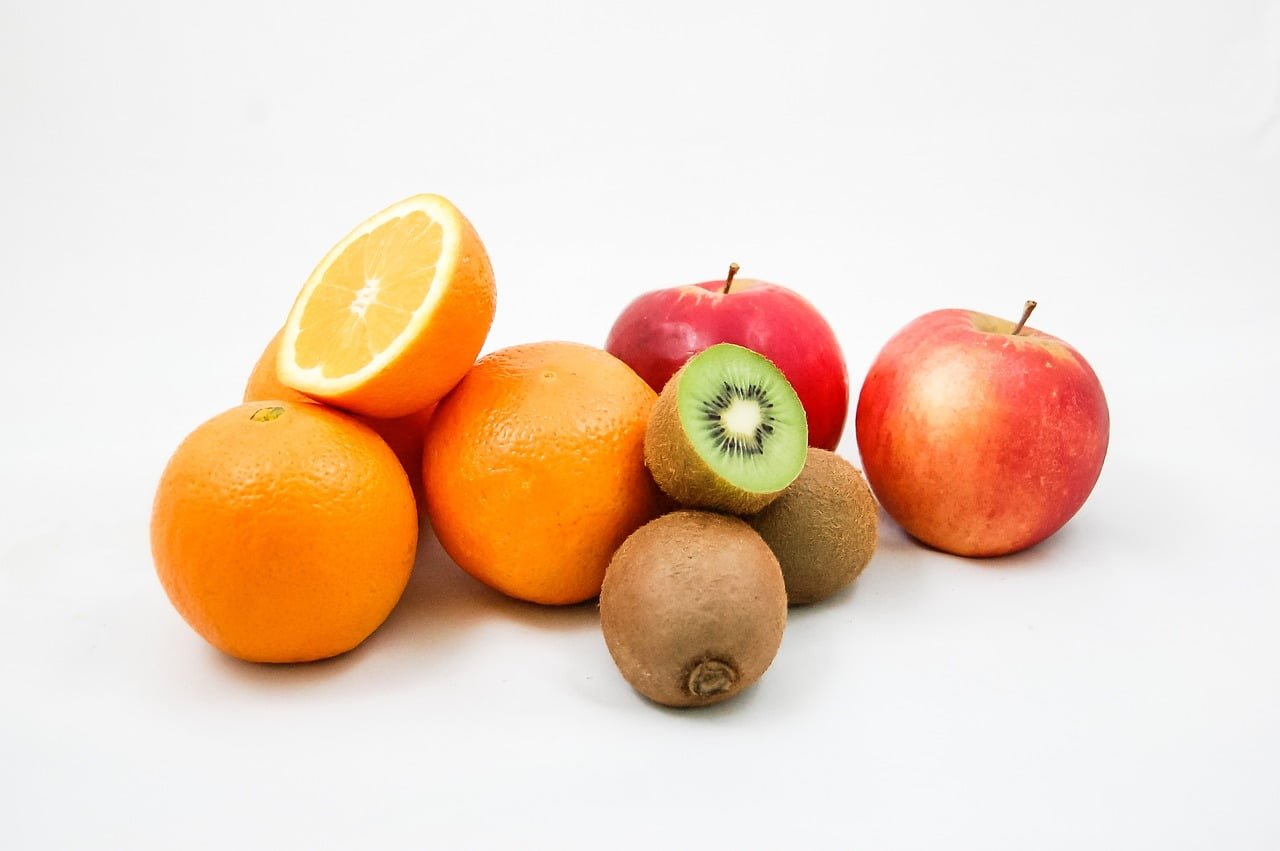
Benefit of Orange in Pregnancy: Ultimate Guide for 2024
Congratulations! You’re embarking on the incredible journey of pregnancy. As your body nourishes a tiny miracle, a healthy diet becomes more important than ever. While you might be craving all sorts of goodies, nature provides some of the best pregnancy fuel in the form of fruits and vegetables. Among these nutritional powerhouses, oranges shine brightly, offering a delightful and beneficial addition to your prenatal diet.
Packed with essential vitamins and minerals, oranges are a readily available and affordable source of goodness for both you and your developing baby. Let’s explore the secret Benefit of Orange in Pregnancy, a deeper look into the impressive nutritional profile of oranges and explore how they can contribute to a healthy pregnancy throughout each trimester.
Nutritional Profile of Oranges: A Powerhouse of Essential Nutrients

Oranges aren’t just a burst of sunshine in flavour; they’re a treasure trove of vital nutrients crucial for both you and your growing baby. Here’s a closer look at some of the key vitamins and minerals found in oranges:
- Vitamin C: This antioxidant superstar plays a vital role in supporting your immune system, which can take a hit during pregnancy. It also helps your body absorb iron, essential for carrying oxygen to your baby. Additionally, vitamin C is involved in collagen production, which contributes to healthy skin and tissues.
- Folate: This B vitamin is an absolute hero during pregnancy. Folate helps prevent neural tube defects, which are malformations of the brain and spinal cord in the developing baby. The American College of Obstetricians and Gynecologists (ACOG) recommends that all women who might become pregnant consume 400 micrograms (mcg) of folic acid daily, and even more (600 mcg) once pregnant.
- Fiber: Packed with fiber, oranges can be your ally in digestion. Fiber helps keep you regular, preventing constipation, a common pregnancy complaint.
- Potassium: This mineral is essential for maintaining healthy blood pressure, which can fluctuate during pregnancy.
- Calcium: Oranges are a good source of calcium, a vital mineral for building strong bones and teeth in your developing baby.
- Magnesium: This mineral plays a role in muscle function and relaxation, which can be helpful in managing pregnancy-related aches and pains.
Now that we understand the impressive nutritional content of oranges, let’s explore how these nutrients translate into tangible benefits throughout your pregnancy journey.
Benefit of Orange Throughout Pregnancy
The benefits of incorporating oranges into your pregnancy diet extend across all three trimesters. Here’s how this sunshine fruit can support your health and your baby’s development in each stage:
Benefit of Orange in the First Trimester
- Combating Morning Sickness: The first trimester can be a rollercoaster of emotions and physical sensations, with morning sickness being a common challenge. Oranges, with their high water content and refreshing taste, can help combat nausea and keep you hydrated.
- Boosting Hydration: Staying hydrated is crucial in the first trimester for optimal fetal development and overall well-being. The juicy goodness of oranges makes them a delicious way to meet your daily hydration needs.
Benefit of Orange in the Second Trimester
- Natural Energy Boost: As your baby grows in the second trimester, your energy levels may fluctuate. The natural sugars and vitamin C in oranges provide a healthy and refreshing energy boost to keep you going throughout the day.
- Promoting Digestion: The second trimester can also bring about digestive changes, including constipation. The fiber content in oranges can help regulate your digestive system and keep things moving smoothly.
Benefit of Orange in the Third Trimester
- Combating Constipation: Constipation remains a common complaint in the third trimester as the baby puts pressure on your digestive system. The fiber in oranges can continue to be a helpful tool in managing constipation.
- Supporting Immune System: Throughout pregnancy, a strong immune system is essential for both you and your baby. The vitamin C in oranges continues to be a valuable ally in keeping you healthy and fighting off potential infections.
Additional Benefits of Eating Oranges During Pregnancy

Beyond the benefits specific to each trimester, incorporating oranges into your pregnancy diet offers some additional advantages:
- Regulating Blood Pressure: Oranges are a good source of potassium, a mineral that helps regulate blood pressure. Maintaining healthy blood pressure is crucial throughout pregnancy, especially as your body undergoes changes.
- Potential Benefits for Skin Health: Although more research is needed, some studies suggest that vitamin C may contribute to healthy skin. During pregnancy, many women experience changes in their skin, and oranges might offer a natural boost. However, remember a balanced diet is key for overall skin health.
It’s important to remember that moderation is key. While oranges are a fantastic addition to your diet, consuming excessive amounts of any fruit can lead to unwanted side effects, such as stomach upset or diarrhea.
How Much Orange is Safe During Pregnancy?

Now that you’re aware of the fantastic benefits oranges offer during pregnancy, you might be wondering: how much is too much? The good news is, incorporating oranges into your daily diet is generally safe and recommended. Here’s a roadmap to finding your ideal orange intake:
- Recommended Daily Intake: The American College of Obstetricians and Gynecologists (ACOG) doesn’t specify a limit on orange consumption during pregnancy. However, they recommend a daily intake of 85 milligrams (mg) of vitamin C. Just one medium orange can provide over 70mg of vitamin C, so exceeding the recommended daily intake is unlikely with moderate consumption.
- Potential Side Effects: While oranges are generally safe, consuming excessive amounts of citrus fruits can lead to some side effects like heartburn, due to their acidity. If you experience discomfort after eating oranges, adjust your intake or consult your doctor for personalized advice.
Here’s a helpful tip: Aim for variety! Include a mix of fruits and vegetables in your diet to ensure you’re getting a broad spectrum of vitamins and minerals. While oranges are a powerhouse, other fruits like berries, apples, and bananas offer additional benefits.
Selection and Storage Tips for Oranges
To maximize the nutritional benefits of oranges, choosing fresh and storing them properly is key. Here are some helpful tips:
- Choosing the Perfect Orange: Look for oranges that feel heavy for their size, with smooth, brightly colored skin. Avoid oranges with blemishes or soft spots. A firm orange indicates freshness and juiciness.
- Storage Secrets: Oranges can be stored at room temperature for a few days. For longer storage, they can be placed in the crisper drawer of your refrigerator for up to two weeks. Don’t store oranges near strong-smelling foods, as they can absorb odors.
Delicious Ways to Include Oranges in Your Pregnancy Diet:

Who says healthy can’t be delicious? Here are some creative ways to incorporate oranges into your pregnancy diet, satisfying your sweet and savory cravings throughout the day:
Breakfast:
- Start your day with a sunshine smoothie: Blend a peeled orange with yogurt, spinach, and a touch of honey for a refreshing and nutrient-packed breakfast drink.
- Citrusy oatmeal: Add a chopped orange segment and a sprinkle of cinnamon to your morning oatmeal for a burst of flavor and vitamin C.
Lunch:
- A refreshing salad sensation: Top your salad with segmented oranges, crumbled feta cheese, and a light vinaigrette for a light and satisfying lunch.
- Citrusy chicken stir-fry: Add orange slices to your stir-fry with chicken, vegetables, and a light soy sauce-based sauce for a flavorful twist.
Dinner:
- Glazed salmon with orange: Bake salmon drizzled with a mixture of orange juice, honey, and a touch of Dijon mustard for a healthy and delicious dinner.
- Roasted sweet potato wedges with orange zest: Toss sweet potato wedges with olive oil, orange zest, and your favorite herbs for a colorful and flavorful side dish.
Snacks:
- Classic and satisfying: There’s nothing wrong with keeping it simple! Enjoy a peeled orange as a healthy and refreshing snack between meals.
- Frozen orange treats: Freeze orange segments for a healthy and fun frozen treat that satisfies your sweet tooth. You can also blend frozen oranges with yogurt for a homemade sorbet.
Let these ideas spark your creativity! Get creative and explore different ways to incorporate oranges into your meals and snacks. From citrus salads to refreshing smoothies, the possibilities are endless!

Safety Considerations When Eating Oranges During Pregnancy
While oranges are a fantastic source of vitamins and minerals during pregnancy, there are a few safety considerations to keep in mind:
- Washing is key: Always wash fruits and vegetables thoroughly before consumption. This helps remove any bacteria or pesticides that might be present on the skin.
- Moderation is your friend: As mentioned earlier, moderation is key. While oranges are generally safe, excessive consumption of any fruit can lead to digestive issues. Tune in to your body’s signals and adjust accordingly.
- Consult your healthcare professional: If you have any pre-existing medical conditions or concerns regarding citrus consumption, consult your doctor or registered dietitian for personalized advice. They can guide you on how to safely incorporate oranges into your pregnancy diet.
Here’s a common concern addressed:
- Can oranges interact with medications? Some medications can interact with grapefruit, another citrus fruit. However, oranges are generally not known to cause significant interactions with medications. If you have any concerns, always discuss it with your doctor or pharmacist.
By following these safety tips and consulting your healthcare professional, you can enjoy the benefits of oranges throughout your pregnancy with confidence.
Pregnancy is a journey of incredible changes and newfound cravings. As you nourish your growing baby, oranges can be a delightful and beneficial addition to your diet. Packed with essential vitamins and minerals, oranges offer a range of benefits throughout your pregnancy journey. From combating morning sickness in the first trimester to supporting a healthy immune system in the third, these sunshine fruits can be your partner in health.
Remember, a balanced diet is key. While oranges are a powerhouse, include a variety of fruits and vegetables to ensure you’re getting a full spectrum of nutrients. Don’t hesitate to get creative! Explore different ways to incorporate oranges into your meals and snacks, making healthy choices enjoyable and delicious.
Embrace the refreshing taste and impressive benefits of oranges, and embark on a healthy and happy pregnancy!
There’s no specific limit, but moderation is key. Aim for one to two oranges per day, or enough to meet your daily vitamin C needs (around 70-85mg).
Yes, some women experience heartburn due to the acidity of citrus fruits. If you experience discomfort, adjust your orange intake or consult your doctor for alternative sources of vitamin C.
Oranges are generally safe for most pregnant women. However, always wash fruits thoroughly before consumption. For personalized guidance, consult your healthcare professional.
Oranges are a low-calorie and filling snack. The fiber content can help manage hunger pangs and aid in digestion. However, consult a registered dietitian for a personalized plan for healthy weight management during pregnancy.
Berries, kiwi, grapefruit (consult your doctor if taking medications), and apples are all excellent sources of vitamin C and other essential nutrients.